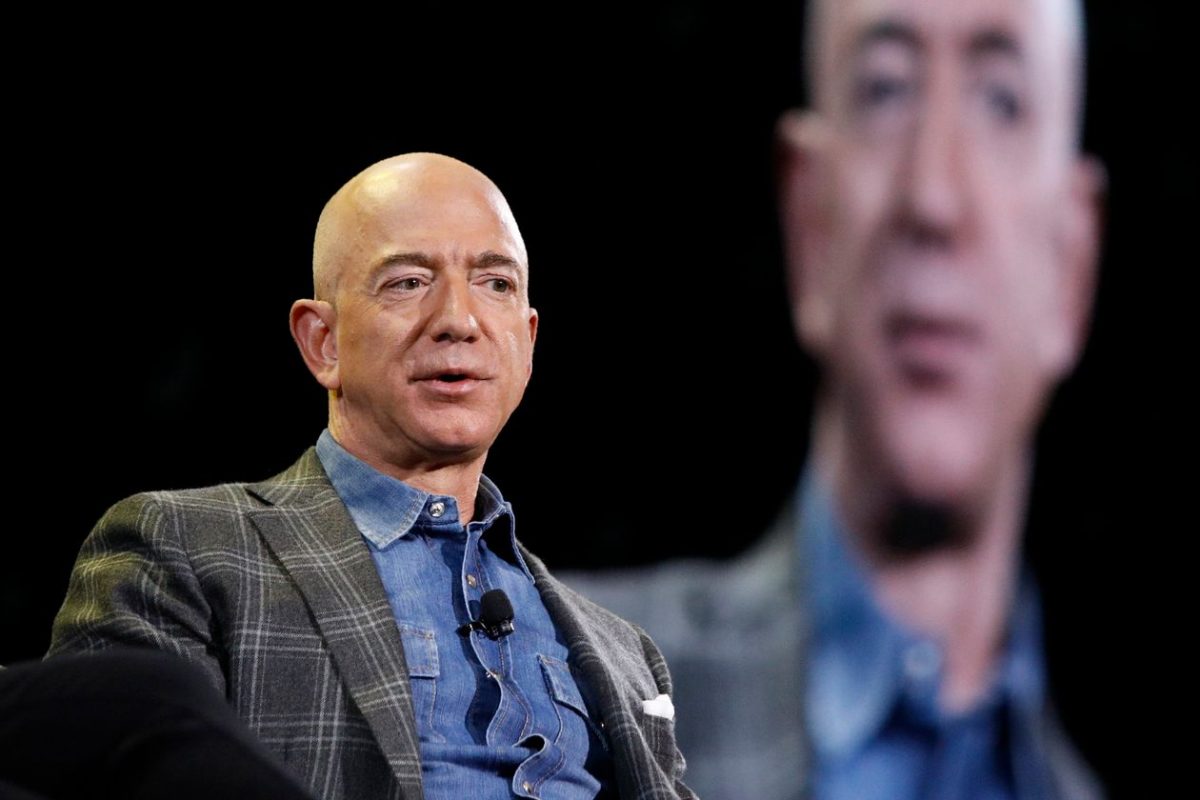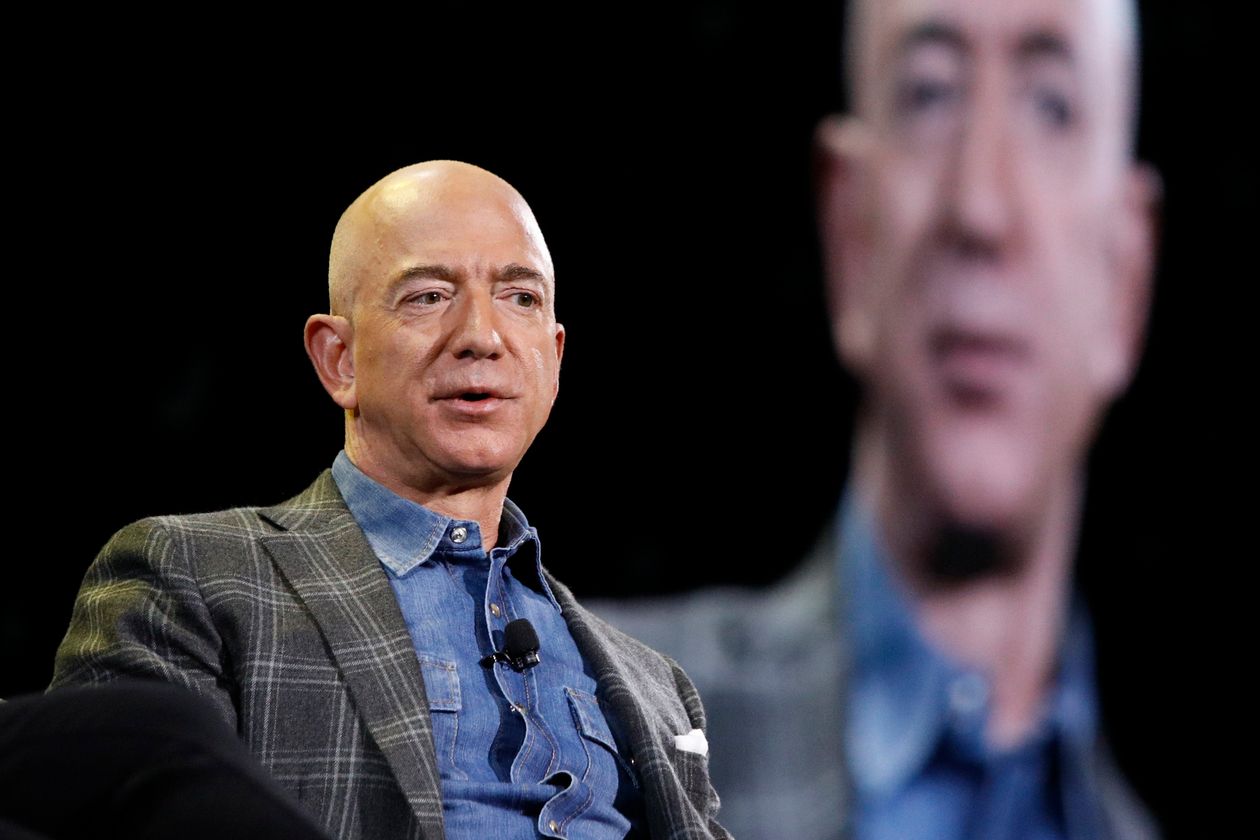The Daily Ten – Jeff Bezos steps down as CEO of Amazon, Billionaire Investor Bill Ackman bets on housing in Texas & Las Vegas…

The Daily Ten
1. Jeff Bezos to Step Down as Amazon CEO; Andy Jassy to Take Over | WSJ
The company announced changing roles as it reported that revenue in the fourth quarter soared 44% to $125.56 billion
Jeff Bezos is stepping down as chief executive of Amazon. AMZN 1.11% com Inc. to become executive chairman, marking the biggest change in leadership of the tech giant since he started it in a Washington state garage more than 26 years ago.
Amazon said on Tuesday that he will be succeeded as CEO in the third quarter by Andy Jassy, Mr. Bezos’s closest lieutenant and the longtime head of the company’s booming cloud-computing business.
Mr. Bezos, 57 years old, is handing over the day-to-day reins, as Amazon’s core businesses of online retail and business-computing services are booming during the Covid-19 pandemic, which has shifted work and life to the internet more than ever. The company announced his changing role as it reported that revenue in the fourth quarter soared 44% to $125.56 billion—surpassing $100 billion for the first time in a three-month span—and profit more than doubled.
2. Hedge-Fund Manager Ackman Raises Bet on Housing in Texas, Hawaii, Las Vegas | WSJ
Pershing Square Capital Management increases stake in Houston developer of multifamily housing in warm, low-tax states
Billionaire hedge-fund manager William Ackman is raising his bet that the migration of Americans to warmer, lower-tax cities is here to stay.
His Pershing Square Capital Management LP recently increased its stake in Howard Hughes Corp. to nearly 25%. The Houston-based developer is ramping up construction of multifamily housing in Texas, Maryland, Hawaii and Las Vegas.
“It’s not a Wall Street bet. It’s a generational bet,” said Mr. Ackman, who is also chairman of Howard Hughes’s board. The fund manager is widely known for his shareholder-activism campaigns and his bets on large companies such as Starbucks Corp. and J.C. Penney Co.
Pershing Square increased its stake in Howard Hughes by about 4.7% between June and January, according to public filings. The firm bought common stock, and some of its counterparties exercised options that compelled Pershing Square to buy additional shares, filings show.
3. Tampa Hotels Hope Super Bowl Won’t Be a Super Bust | WSJ
Average four-star hotel room rates in Tampa stand to peak at $512 this weekend—well below last year’s $2,294 peak
The Super Bowl usually has one guaranteed winner: the host city’s hotel owners. But this Sunday, hotels in the Tampa, Fla., area are hoping not to feel like losers.
When the National Football League awarded Super Bowl LV to Tampa in 2017, it was like hitting the jackpot for local hotels, bars and restaurants. Many host city hotels count on Super Bowl weekend to help make their year. Hotel owners can typically raise room rates by at least 50% above the seasonal norm as football fans vie for a place to stay.
But for a number of reasons, demand for Tampa hotel beds is now likely to be far lower than usual for the big game this weekend. Thanks to Covid-19-related attendance limits, only 24,700 people are expected in Tampa’s Raymond James Stadium on Sunday, far below its capacity of around 66,000. Many fans may be reluctant to travel by air during the pandemic and stay home.
4. Amazon unveils design for ‘Helix’ office building at HQ2 — here’s what it will look like | CNBC
Amazon on Tuesday unveiled the latest look at its second headquarters in northern Virginia.
The standout feature of the design proposal for HQ2 includes a unique structure, dubbed “The Helix.” Amazon described the 350-foot-tall office tower as a “spiraling vertical forest” that features outdoor walkways with trees and plants that twist up to the top of the building.
The shape of the building is meant to resemble a double helix and touches on “humanity’s innate connection to nature,” according to architecture firm NBBJ, which is designing the structure.
The Helix will serve as an alternative workspace for Amazon employees, but it will also be open to the public on some weekends each month, similar to the “Spheres,” the nature-inspired centerpiece of Amazon’s Seattle headquarters.
5. Why We Don’t Believe the Big City Obituary | Bloomberg
America’s cities offer the greatest hope for the country’s recovery from the coronavirus pandemic. Fortunately, the people who live there agree.
Like social distancing and curbside pickup, alarm about the future of American cities has become a mainstay of the Covid-19 pandemic.
Pointing to downtown office towers usurped by Zoom, shuttered restaurants and stores, and an upsurge in crime and taxes, some are predicting a mass retreat from urban life. “New York City is dead forever,” declared a viral LinkedIn post in August. Last year “ended the boom of cities that started in the 1990s,” announced a recent op-ed in The Hill. Much of the analysis has been fatalistic—gloomy predictions grounded in hunches and snippets of short-term data.
A new survey by The Harris Poll and the Chicago Council on Global Affairs offers evidence for a different narrative. Surveying 1,200 residents of the nation’s six largest metropolitan areas on their attitudes about urban and suburban life in late autumn, the answers provide a window into how metropolitan Americans feel about the places they live during the pandemic.
6. Amazon’s Incoming CEO Andy Jassy Ushered in Cloud Computing Boom | Bloomberg
Incoming Amazon.com Inc. Chief Executive Officer Andy Jassy cuts a low profile outside of the wonky world of cloud computing. But for much of the last decade he’s been arguably the most important person in the tech industry.
The unit he leads, Amazon Web Services, has reshaped how companies buy technology, by simplifying computing services into their component pieces and offering them essentially for rent over the internet. The business was initially dismissed by enterprise software giants like Oracle Inc. before that company and others quickly sought to emulate elements of AWS’s strategy.
7. NYC landmarks historic abolitionist hotspot in Brooklyn | New York Post
A downtown Brooklyn row house that was home to two leading 19th Century abolitionists will be protected from demolition under historic preservation laws thanks to a Tuesday vote by the city’s landmarking commission.
The Landmarks Preservation Commission voted unanimously to OK the designation, which was backed by many prominent Brooklyn politicians, including Mayor Bill de Blasio, Borough President Eric Adams, Public Advocate Jumaane Williams and the area’s Councilman Stephen Levin.
“When we talk about 227 Duffield Street we’re not just talking about a building, we’re talking about a deeper history, and something we cannot afford to lose because it’s part of our heart and soul,” de Blasio said Tuesday.
The building at 227 Duffield Street was home to Thomas and Harriet Truesdell for more than a decade — from 1851 to 1863, during the run-up and in the early years of the Civil War.
8. Commuting platform startup Hip lands $12 million to help companies bring employees back to the office | TechCrunch
Nearly a year ago, the spread of COVID-19 ended the daily commute for millions of Americans, an abrupt change that sent the ridesharing industry into a free fall.
Hip, which connected commuters with third-party bus and shuttle operators via an app, was just one of the many mobility-as-a-service startups that watched its clientele and revenue dwindle. Instead of cutting costs and waiting out the pandemic and the disruption it delivered, Hip expanded.
Hip added a business-to-business offering to its platform, a move aimed at companies and manufacturers preparing to bring back workers.
“Instead of holding back we actually doubled down and increased our platform,” CEO Amiad Solomon said in a recent interview, adding that the decision was prompted by discussions they had with large corporations that were struggling with how to safely bring employees back to the office.
9. How to cultivate the next generation of Black CEOs, according to M&T Bank CEO René Jones | Fortune
As CEO of Buffalo-based regional bank M&T, René Jones is only one of four Black CEOs in the Fortune 500, a cohort whose number he’d like to increase. Jones, the son of an African-American soldier and the Belgian wife he met while serving in World War II, joined the bank in 1992 and benefited enormously from its executive training programs. A accountant by training, he took the reins of the bank in 2017.
Jones says companies have to do more to put promising Black executives on a management track: steps like recruiting from a broader array of schools and helping communities bridge the digital divide. In the case of financial institutions, that means helping more promising entrepreneurs get the capital they need.
10. Opendoor revenue plummets 45% in 2020 | The Real Deal
iBuyer looks to raise $700M in stock offering
After Covid forced Opendoor into a five-month homebuying limbo in 2020, the newly public company is projecting a 45 percent drop in annual revenue.
The instant homebuying startup projected $2.58 billion in 2020 revenue, down 45 percent year-over-year from $4.7 billion, it said in a regulatory filing Tuesday. It anticipates losing between $98 million and $103 million on an EBITDA basis. That’s compared to a net loss of $339 million in 2019.
Opendoor shared the preliminary financials in conjunction with a disclosure that it is looking to raise more than $600 million through a stock offering, just six weeks after it went public via a SPAC. It plans to offer 24 million shares of its common stock. Opendoor is yet to price the shares, but estimated net proceeds based on a closing price of $26.12 on January 29. The company could raise just under $700 million if underwriters at Citigroup and Goldman Sachs exercise their shares.


